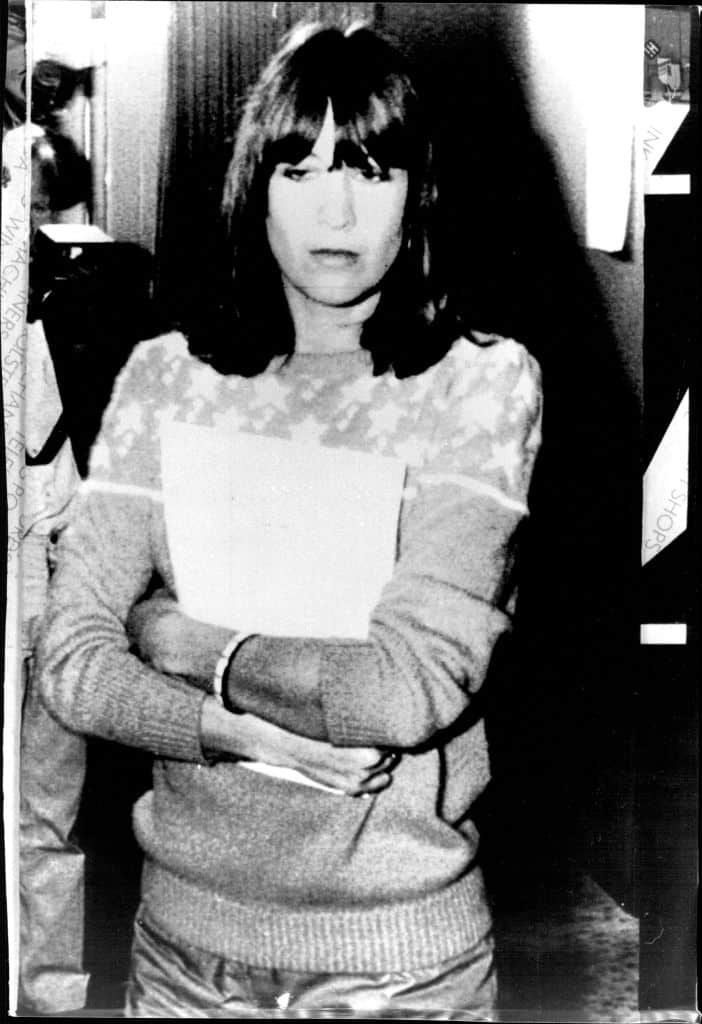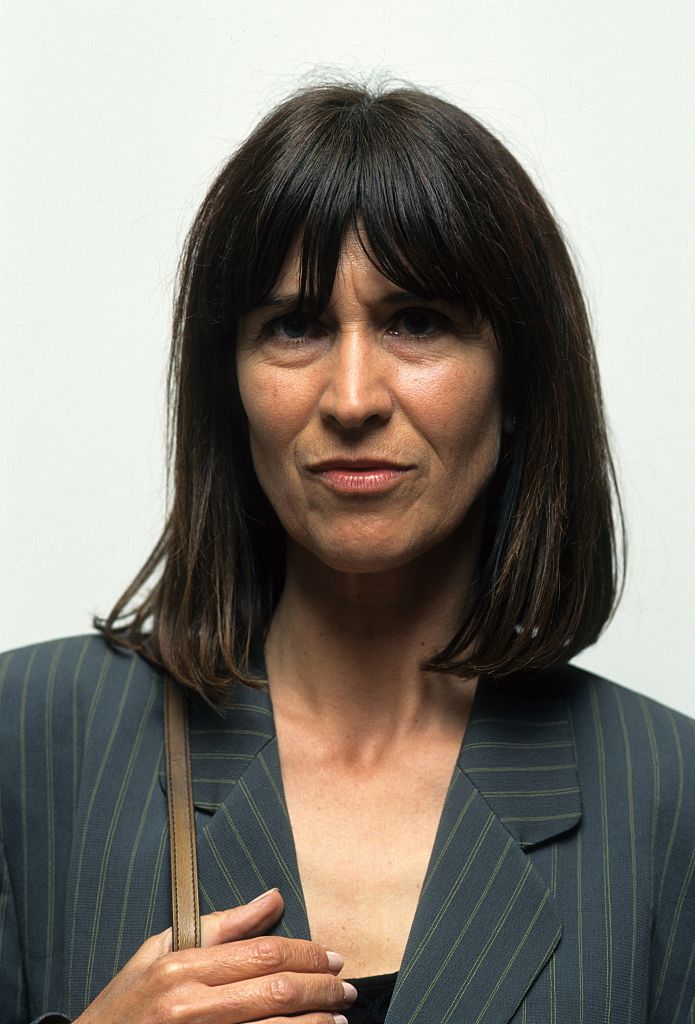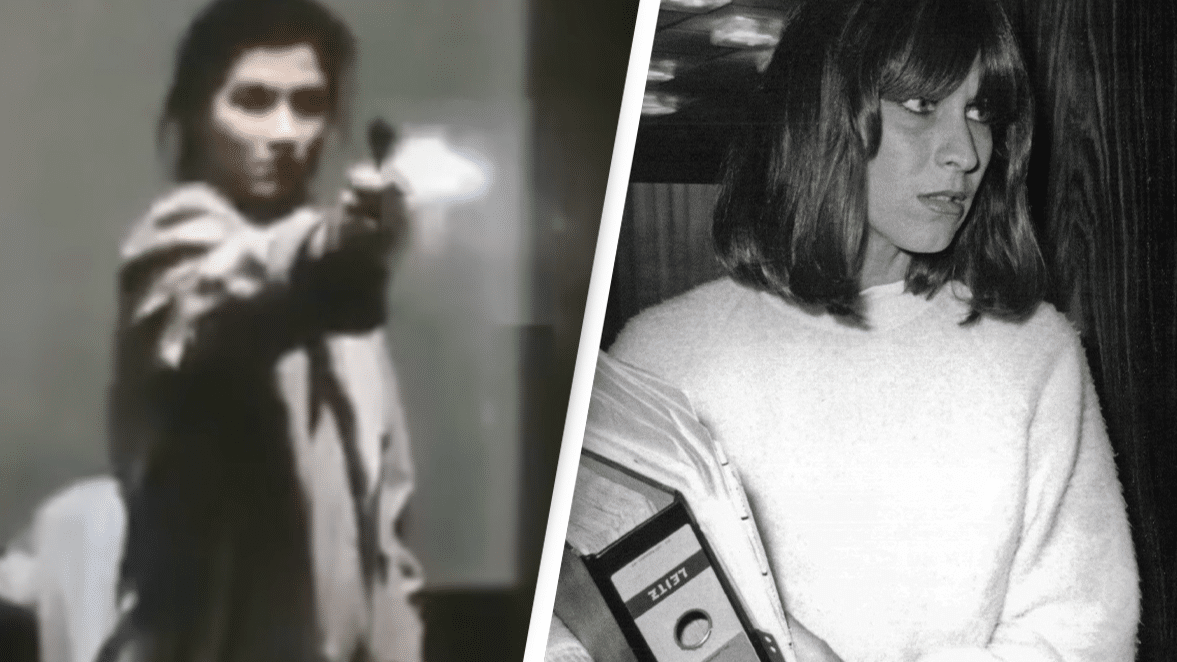On a serene morning in Lübeck, Germany, on March 6, 1981, a woman named Marianne Bachmeier entered a courtroom with a composed yet resolute demeanor. What transpired next would astonish a nation and resonate globally for years to come. Marianne, with a loaded pistol concealed in her handbag, aimed at Klaus Grabowski—the man accused of kidnapping, assaulting, and murdering her seven-year-old daughter, Anna. In mere seconds, she fired seven shots, taking his life right there in the courtroom.
Her arrest was immediate, but Marianne exhibited no remorse. She had done what many parents might secretly fantasize about in their darkest moments: she took justice into her own hands. Her raw and emotional act ignited a worldwide debate. Even four decades later, Marianne Bachmeier’s name endures as a symbol of vengeance, sorrow, and the moral ambiguity between justice and vigilantism.

Marianne’s life was marked by hardship from the start. Her childhood was filled with tragedy, trauma, and deep emotional scars. Her father had served in the Waffen-SS during Nazi Germany, casting a long shadow over the family. As a young girl, Marianne faced abuse and trauma. At sixteen, she became pregnant and placed her baby for adoption. Two years later, she found herself pregnant again and made the same heart-wrenching choice. However, in 1973, when she gave birth to her daughter Anna, everything changed. This time, Marianne chose to keep her child and raise her as a single mother.
Anna was described as a bright, affectionate little girl, brimming with curiosity and energy. She lived with her mother in Lübeck, where Marianne worked tirelessly to support them by running a small pub. Life was challenging, but the bond between mother and daughter was profound. That bond was tragically severed on May 5, 1980, when Anna vanished after a minor disagreement at home. She had decided to skip school to visit a friend but never arrived. On her way, she was lured and abducted by 35-year-old Klaus Grabowski, a convicted sex offender with a history of molesting young girls.
Grabowski, who lived nearby, had a violent and manipulative past. While serving time for his previous crimes, he had voluntarily undergone chemical castration. However, in an attempt to lead a “normal” life, he later received hormone therapy to reverse the effects. At the time of Anna’s murder, he was living with his fiancée and had returned to the community with little notice, despite his background. He held Anna captive in his apartment for several hours, during which he abused and ultimately strangled her.
He disposed of Anna’s small body in a cardboard box by a canal. Later that day, Grabowski returned to move and bury her, but his fiancée, having learned of the crime, alerted the police. He was arrested that same night at a local bar.
Grabowski’s arrest brought little solace to Marianne. During his trial, he made disturbing claims, including an outrageous assertion that Anna had attempted to seduce and blackmail him—an allegation that only deepened Marianne’s suffering. Already grappling with the loss of her daughter, she now had to endure hearing her child’s character attacked in court.
On that fateful morning in March 1981, during the third day of the trial, Marianne entered the courtroom with a pistol hidden in her handbag. As the proceedings were about to commence, she stood up, drew the gun, and fired seven shots at Grabowski, killing him instantly. Her words were sharp and clear: “He killed my daughter… I wanted to shoot him in the face, but I shot him in the back … I hope he’s dead.” Witnesses, including police officers, recalled her calling him a “pig” moments after the gunfire.
Her arrest was swift. Initially charged with murder, Marianne faced trial the following year. She claimed to have acted in a trance-like state, driven by visions of her daughter in the courtroom. However, investigators found evidence suggesting otherwise. Her familiarity with the firearm and the precision of her actions indicated that the act was premeditated. In a handwriting sample submitted during a psychological evaluation, she wrote, “I did it for you, Anna,” accompanied by seven hearts—one for each year of her daughter’s life.

The trial became a media sensation. Many Germans viewed her as a tragic hero, a mother pushed to her limits. Others were more critical, insisting that justice should be left to the courts, regardless of the crime. The press, initially sympathetic, began to investigate her past—highlighting her troubled upbringing, her time spent at the bar, and the children she had given up. Public opinion became polarized.
Ultimately, Marianne was convicted of premeditated manslaughter and illegal possession of a firearm. She received a six-year prison sentence but was released after just three years. A national survey revealed the public’s conflicted feelings about her punishment: roughly one-third believed the sentence was fair, another third thought

After completing her sentence, Marianne left Germany in search of a quieter life away from the public eye. She moved to Nigeria, where she married a German teacher, and later relocated to Sicily following their divorce. In the 1990s, she returned to Lübeck after being diagnosed with pancreatic cancer. Despite her efforts to distance herself from her past, her name remained in the headlines.
Years later, interviews with Marianne revealed a woman still deeply affected by her experiences. In a 1994 radio interview, she articulated the distinction between her actions and those of Grabowski, vividly recounting the horror of her daughter’s death and asserting that Grabowski’s actions forfeited his right to live. In another televised interview, she acknowledged that the shooting was intentional, a calculated act to stop Grabowski from continuing to lie about Anna.
Marianne passed away on September 17, 1996, in her hometown of Lübeck. She was laid to rest next to her daughter in the same cemetery, their graves forever side by side—a poignant reminder of a tragedy that transformed the nation’s perception of justice.

Even today, her story provokes deep questions. Was Marianne Bachmeier a mother pushed to the brink by grief, or was she a representation of a flawed justice system that failed to safeguard the innocent? Her narrative continues to polarize opinions in Germany and beyond, with some viewing her as a martyr and others as a vigilante.
What remains indisputable is the profound pain she endured and the lengths to which a grieving parent might go in pursuit of justice. Regardless of one’s stance on her actions, Marianne’s story continues to inspire reflection on justice, trauma, and the delicate boundaries between right and wrong.
